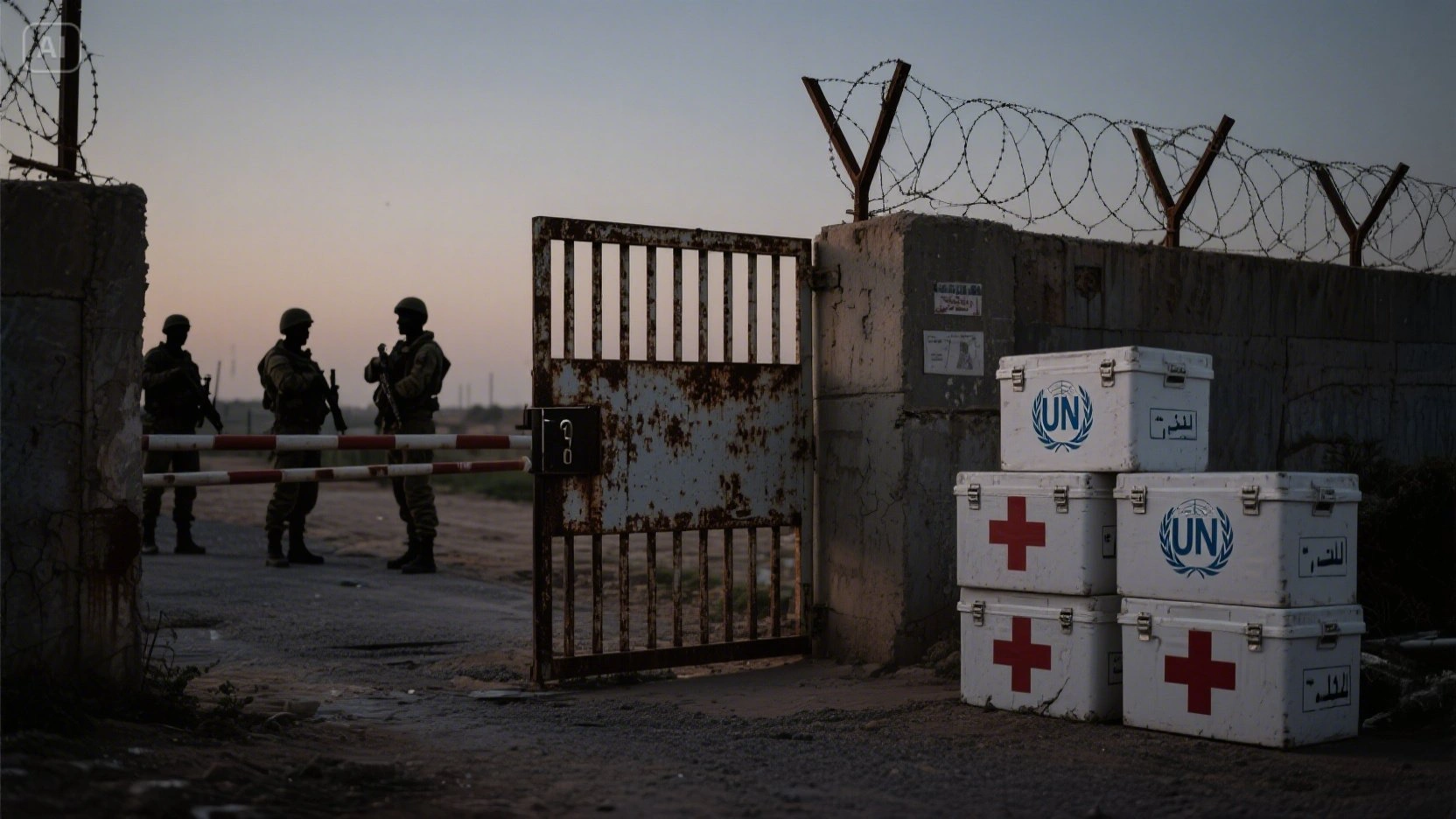The Legal Consequences of Gaza’s Blockade

The Legal Consequences of Gaza’s Blockade
Though it may seem like the humanitarian situation in the Gaza strip in the middle of 2025 is a far-off political battle, it is a political crisis that is the litmus test of the international community and a test of international law. The blockade and the denial of humanitarian assistance by Israel have sparked renewed outrages on the part of human rights activists, governments across the world and civil societies. Although Israel may argue that its actions are out of security reasons, the punishment of a whole people is a violation of the laws of war as well as against good human nature.
A Brief Overview of the Current Crisis
Siege since the end of 2024, Gaza has been one of the most severely sieged places in modern history. Israel sponsored the blockade that has featured the denied access to food, fuel, medical aid and other basic services that have resulted in rampant starvation, the shutdown of hospitals and the loss of lives of thousands of people most of whom are children. On July 27, 2025, the Australian Foreign Minister, Penny Wong, termed the Israel moves as morally wrong leading to the growing international sense that goes beyond the ceremonial diplomatic frame. The brief time windows declared by Israel as humanitarian ceasefires in northern Gaza are too little and not help avert the crisis which rests on a much bigger epidemic of denying life-sustaining relief to a civilian population in a zone of conflict.
The Legal Case Against the Blockade
Even in war, the parties involved in the conflict should differentiate between the belligerents and the civilians in the conflict as stated in the international humanitarian law (IHL) especially by the Geneva Conventions. Proportionality rule forbids an attack or blockade that causes superfluous human losses among the population, as compared with the expected military benefit. Besides, Article 54 of the Protocol I under the Geneva Conventions expressly forbids the starving of civilians as a means of war and it requires unimpeded access of basic humanitarian assistance.
The major basis of Israeli defence resides on the right of self-defence and the argument that the aid is being misused and misdirected by Hamas. Although these cannot entirely be called unwarranted, they, however, cannot be legally supported in such a generalized, non-selective aspect of the blockade. Under the laws of occupation and blockade, the restrictions should be tailored specifically and on a limited basis and should be controlled by humanitarian jurisdiction. All these conditions are not satisfied.
Moreover, last year the International Court of Justice brought action against the global community by issuing a landmark climate decision, even though that case had nothing to do with Gaza. Given that the ICJ has recently been able to declare the concept of environmental degradation as a breach of the rights of future generations, it becomes rather essential that the international law system reacts when the breaches are causing harm directly and immediately to a population of civilians.
The Moral Collapse of Silence
The accountability of the international society is another dimension to the existence of the legal frameworks, which is as imperative as the laws. The photos in front of us, out of Gaza, of the skinny children, the destroyed hospitals, and the mass graves, are not casualties of war; they are the testimonies of the misery that is the direct result of policy decisions. Encouragingly, governments such as those of Australia, Ireland and Norway are now starting to speak up, yet far too many others, especially those located in the Global North, are still reluctant to criticize the conduct of Israel lest they face a political backlash or encounter diplomatic strains.
There are practical effects of this moral reluctance. One silent day is a day more to the blockade. Each compromising makes subsequent abuses stronger. What use is it to have our conventions, our conventions and institutions, when the world is unable to act when such thing as starvation is employed as a weapon? Moral clarity does not imply denying the intricacy of the conflict or the genuine security apprehensions of any country, it is the power to ensure there is a boundary when the fundamental principles of humanity have been transgressed.
Geopolitical Fallout and Double Standards
The Gaza blockade has shown some of the most corrosive effects: global double standards in applying the international law. Later, when Russia attacked Ukraine in 2022, the West reacted with moral indignation, sanctions and substantial support programs. However, when it comes to a starving and bombing Middle East population, then these same voices tend to revert to the language of both sides or complete silence.
Such inequality undermines the credibility of global organizations and makes the push to foster the rule of law less effective. It also stokes resentment in the Global South, where it is widely seen as hypocritical and selective, human rights advocacy being mostly promoted by the West. To stay credible, the global powers should utilize their norms on a universal basis even when such does not implicate friends.
When dictatorial states are observing the reaction to crisis and injustice by international community, silence in Gaza opens a threatening precedent. It sends a message that the international law is optional, that morality is a matter to be bargained, and that the cost of civilian sufferings is justified.







